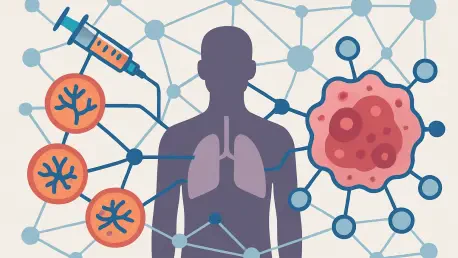
The landscape of clinical trials is undergoing a seismic shift as digital innovations reshape every aspect of research, with electronic consent (eConsent) emerging as a pivotal force in this transformation, especially as trials adopt decentralized and hybrid frameworks to accommodate diverse and

In a world where HIV continues to impact millions globally, a groundbreaking effort at The Herbert Wertheim UF Scripps Institute for Biomedical Innovation & Technology in Jupiter, Florida, is sparking hope for a transformative solution. This research hub has embarked on an ambitious journey to

In the relentless battle against cancer, groundbreaking treatments such as cell therapies have emerged as beacons of hope, offering personalized solutions that can target the disease with unprecedented precision. However, for countless patients across the globe, particularly in regions with limited

In a world where colorectal cancer continues to affect nearly two million people annually, a groundbreaking discovery offers a glimmer of hope for those battling this devastating disease, and a recent clinical trial conducted by a Swedish research team has unveiled a remarkable finding. A simple,

In a landscape where rare diseases often linger in the shadows of medical research, autosomal dominant hypocalcemia Type 1 (AD#), a condition affecting calcium regulation, impacts thousands with limited treatment options. With an estimated 12,000 individuals in the U.S. grappling with this

I'm thrilled to sit down with Ivan Kairatov, a renowned biopharma expert whose extensive experience in research and development, coupled with a keen understanding of technology and innovation, makes him a leading voice in the industry. Today, we’re diving into the FDA’s recent push to accelerate